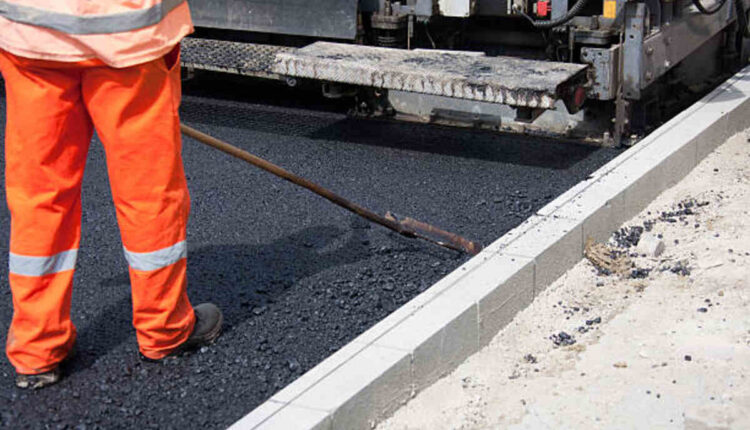Asphalt paving terminology encompasses an expansive variety of materials and processes for designing and building asphalt pavement structures, some essential to successful design/construction processes and others contributing unique performance characteristics. Choose the best Asphalt Paving Contractors Memphis.
Gradations with relatively uniform proportions from maximum size down to filler in order to create a mix with low void content and excellent stability, also known as dense-graded aggregate.
Definitions
Asphalt paving material is used in road construction, often called blacktop or asphalt for short. With multiple variations available to meet various repairs, resurfacing, or new build needs, it must be specified correctly to achieve optimal performance.
Asphalt should never be used as an umbrella term when seeking specifications or work since its usage could include various materials and applications ranging from hot mix asphalt (HMA), cutback/emulsified asphalt, and cold-in-place recycling (CIR).
Air Voids- Empty spaces within a compacted mixture occupied by aggregate particles, expressed as a percentage of its total volume. A well-graded aggregate is one with uniform proportions between its maximum size and filler aggregate particles; this creates an asphalt mix with controlled void content and high stability.
Pavement Movement-Pavement movement refers to any deviation of a pavement from its designed position due to traffic load, whether this occurs from excessive stress, temperature variations, poor subgrade soils, or age. There may also be other contributing factors, including extreme stress levels, temperature shifts, subgrade changes, or age.
Design CBR: This figure represents a two-thirds average of all CBR tests conducted on subgrade soils of a specific pavement structure. When multiplied by 2.25, this value yields the typical bearing capacity for that pavement structure.
Composition
An asphalt pavement’s aggregate layer consists of crushed rock and sand that provides strength and durability. This layer typically sits between its subgrade and surface courses and may or may not contain binder, an organic substance made up of complex hydrocarbons derived from petroleum refining that forms an impenetrable black gel made up of sticky hydrocarbon molecules used as a binding agent in petroleum refining operations; combined they create an ideal material suitable for pavement paving.
An asphalt pavement’s base course should be designed to distribute traffic and environmental loading evenly so as to not cause undue strain or stress on its underlying unbound materials. In order to accomplish this goal, its base must be stable, have sufficient stiffness, and feature a high stone-on-stone contact ratio in order to minimize rutting.
Crack seal is the application of hot mix material designed to block water and other substances from seeping through existing cracks and into asphalt pavement, helping prevent potential water seepage issues from entering existing asphalt pavement cracks. Crack sealing may be used both to repair minor and major cracks.
Alligatoring refers to interconnected cracks close together that resembles alligator skin or chicken wire, often caused by poor strength and compaction of base and subgrade layers or insufficient drainage.
Compaction
Compaction is the process of increasing density. Paving experts believe compaction to be vital in maintaining asphalt’s durability; it locks together aggregate particles coated in asphalt coating for stability and resistance to deformation (rutting). Compaction can be accomplished using various rollers or compactors – smooth wheeled, pneumatic, vibratory – designed to push the mixture into its dense form.
Gradation of aggregate reduces the size of spaces between aggregate particles to a minimal value, similar to mineral dust particles. Used in HMA mixtures for road construction projects.
Temperature fluctuations during compaction can quickly drop when dealing with thin asphalt mats, leading to rapid temperature dropoff and lower quality finishes pavements. To mitigate this issue, contractors often make one final pass through using a different compactor than what was used initially – this step helps achieve more even compaction of mat temperatures while improving finished pavement quality.
This method of compaction, commonly referred to as the “stop and go,” involves stopping in an arc during each pass of the compactor before proceeding on its same path again in its next pass. This technique helps avoid drum depressions that result in bumps on finished pavement surfaces while helping maintain target mat temperatures by minimizing rapid heat loss.
Curing
Curing asphalt surfaces occurs when they transition from their initial wet state into their firm and dry state. As part of the pavement process, traffic must remain off until curing has completed its course and hardened into useable surface material. Full curing may take anywhere between six months and a year but is essential in prolonging its longevity and ensuring its lifespan.
Asphalt aggregate material that is utilized in the creation of asphalt pavements, either alone or combined with an asphalt binder, is known as aggregate. Aggregate is a complex, inert mineral substance that can be crushed and sized for specific applications, including sand, gravel, slag, and crushed stone.
Method for evaluating asphalt viscosity based on its rheological properties. Utilizes shear device to test resistance to deformation under load.
Liquid asphalt applied to an untreated base course that penetrates and plugs voids helps bind the base course to the overlying asphalt surface and slows reflective cracking of overlay pavements is known as a hot mix or blacktop pavement treatment and should only be applied on lesser trafficked service roads or off-street locations. Also referred to as hot mix.
Read also: 4 Steps to Asphalt Paving Near Me

